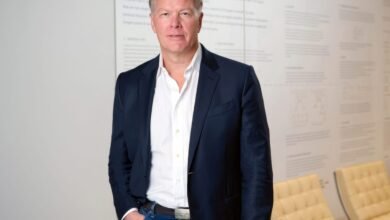Legendary investor Vinod Khosla advises Gen Z to invest in this one skill because ChatGPT can teach you everything else

In a candid and far-reaching discussion on Nikhil Kamath’s YouTube channel, legendary venture capitalist Vinod Khosla, one of Fortune‘s most powerful people in business, delivered some advice for Gen Z. It could be seen as a stark warning or as simple pragmatism: the single most important skill for young workers at this moment is not specialization, but the ability to learn rapidly and adapt continuously. His reasoning is simple yet profound: “ChatGPT can teach you any new areas,” rendering traditional academic paths and fixed skill sets increasingly obsolete. The title of the episode was more blunt: “College Degrees Are Becoming Useless.”
The Sun Microsystems co-founder, known for his contrarian views and unwavering certainty in technological possibilities, painted a future where artificial intelligence (AI) will fundamentally transform the job market. He asserted that “there isn’t a job where AI won’t be able to do 80% of 80% of all jobs” within the next three to five years. He explained that the vast majority of all job functions will be replicable by AI, hence the 80% of 80% estimate. It recalled Sam Altman’s claim that AI will make result in “intelligence too cheap to meter.”
Looking 10 to 15 years out, Khosla said, he believes “there’s no chance there’s a job that humans do that AI can’t do almost as well.” He allowed for some minor exceptions and said even heart or brain surgery an AI should theoretically be able to perform to a high level, although regulation may not allow it. This rapid pace of change, faster than the world has seen in the last 50 years, demands a radical shift in how young people approach their careers, he argued.
For a 22-year-old wondering where to focus their efforts, Khosla’s advice is clear: “you have to optimize your career for flexibility, not a single profession.” He emphasized that the value of learning lies not in mastering one specific trade like welding, finance, or even accounting, but in cultivating “the ability to learn” in its own right. He claimed that at 70 years old, he is learning at a much faster pace than ever before, and every young person should strive for this capability. This includes thinking from first principles and jumping into diverse fields, whether physics, biology, or finance, because AI tools will facilitate the rapid acquisition of new knowledge.
Khosla argued that even disciplines like computer science are valuable less for programming expertise (which AI increasingly handles) and more for the “process of thinking” and understanding systems and architectures they impart. The ultimate goal for a young individual, he suggests, is to choose a path where “your knowledge compounds and your capability compounds over time,” mirroring the principle of financial compounding in knowledge acquisition.
The quality of the entrepreneur
For aspiring entrepreneurs, Khosla advises a strategic focus, since he believes that anybody in any industry not using AI will be rendered obsolete by somebody who is using the tool. While AI may democratize technology, he said, success will hinge on the innate “quality of the entrepreneur” — their ability to think strategically, envision long-term goals, select the right teams, and wisely choose who to trust for advice. Khosla believes the current shortage is not of technology or capital, but of “great entrepreneurs who know how to make these choices.”
Beyond individual careers, Khosla and Kamath talked about the wider implications of AI on the economy. Khosla said it should drive down the cost of many things, acting as a deflationary force on many services, and he envisioned an AI-powered utopian future where services like education, medical expertise, and legal advice become “almost free.” He speculated that in 20 to 25 years, $10,000 might buy more goods and services than $50,000 does today, thanks to the deflationary impact of machines providing abundant services.
The career path open to Gen Z
Khosla is far from the only thought leader weighing in on the employment prospects for Gen Z in the age of AI. Anthropic CEO Dario Amodei and Nvidia CEO Jensen Huang have engaged in an ever-more-heated war of words over the former’s doomsday prediction that 50% of all white-collar jobs will be wiped out. Geoffrey Hinton, the so-called “godfather of AI,” has largely agreed with Amodei, saying that only the “very skilled” will remain employed. Huang and Federal Reserve chair Jerome Powell have largely agreed with Khosla, arguing that creativity and constant learning will create new jobs for the economy in a virtuous cycle.
Goldman Sachs chief economist Jan Hatzius has looked at the data and echoed Khosla’s argument that college degrees are losing value, finding that the “safety premium” of a college degree is disappearing. Berkeley economist Brad DeLong agrees that the college degree is losing its status, but casts the blame away from AI and toward the policy uncertainty plaguing the economy, arguing that many Gen Z college graduates are going unhired because conditions are just too risky for most companies. Goldman seems to agree with DeLong, finding in July that AI was overhyped as a reason for most corporate layoffs. Meanwhile, the Federal Reserve isn’t completely sold on the revolutionary prospects of AI, arguing that it may be a revolutionary invention like the electric dynamo, but may end up being a one-off boost to productivity, like the light bulb.
Gen Z, for its part, seems to be craving more human connection. Starbucks recently announced it would sunset its mobile-only locations, thought to be more appealing to Gen Z and a desire for “frictionless” experience, in favor of a renewed emphasis on hospitality and human-to-human connection. The generation has been weathering criticism of late that they lack in social skills necessary for success, with the stereotypical “Gen Z stare” at the center of the conversation. Careers site Glassdoor, for its part, has punctured the myth of “conscious unbossing” by Gen Zers, finding that they are becoming managers at exactly the same historical rate as any other generation, AI notwithstanding.
Ultimately, Khosla’s message for the next generation is one of relentless pursuit of learning and adaptability. In a world rapidly being reshaped by AI, the ability to continuously reinvent oneself and embrace new knowledge may be the ultimate differentiator for survival and success. The human capacity to learn new things, after all, is endless.
For this story, Fortune used generative AI to help with an initial draft. An editor verified the accuracy of the information before publishing.
https://fortune.com/img-assets/wp-content/uploads/2025/08/GettyImages-2158522456-e1754321805808.jpg?resize=1200,600
2025-08-04 18:08:29





